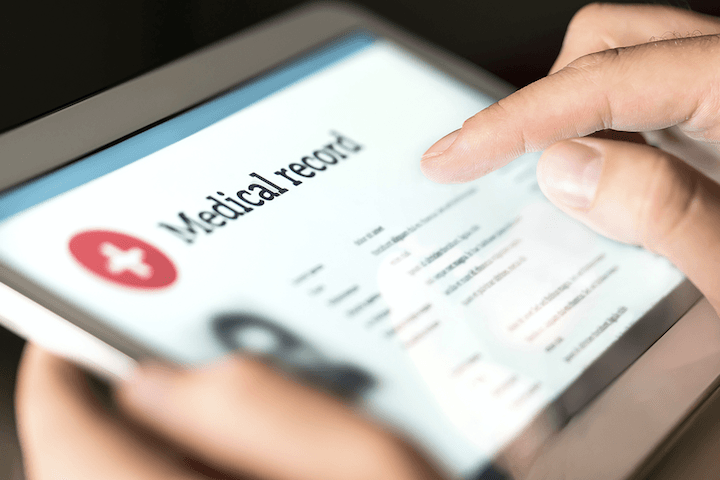In our quest to create an unstoppable team — brimming with talent, efficiency, and poised for greatness — we often focus on just a few key initiatives: engaging our people, sharpening their abilities, and recruiting the best of the best.
Yet, in the midst of these ambitious plans, we sometimes overlook a pivotal aspect: our employees’ health.
Fostering a culture of wellbeing is crucial, not just for boosting organizational productivity but for its ripple effects as well.
Healthy employees contribute to a vibrant work atmosphere, show greater loyalty, and maintain consistent attendance. Moreover, a focus on wellness can translate into lower healthcare and benefits costs, offering mutual advantages for both the company and its staff.
But despite all this, navigating the path to healthier choices still remains a challenge for many employers.
A revealing study by The Commonwealth Fund highlights a concerning trend: 40% of Americans skipped or deferred routine healthcare visits last year, with 60% reporting deteriorating health conditions.
This is echoed by Gallup’s recent findings, which point out that preventable ailments make up 75% of healthcare expenditures.
It’s clear from this data that the current approach to employee health isn’t cutting it for either side.
So what’s going on, and isn’t it time there was a paradigm shift in how we address employee wellness?
Enhanced wellbeing needs a personal touch
For HR and benefits leaders, the financial toll of putting off medical care is clear-cut, but for the workforce at large, it’s a high-stakes game of health and wellbeing.
Skipping out on regular health checks can mean missing early warnings of illnesses that could alter the course of a person’s life.
Here’s where companies can step up to the plate.
It’s only when CHROs are armed with worker claims data and deep insights into their employees’ wellbeing, that businesses can lend clear guidance.
Yet, traditional health tips and the ‘one-size-fits-all’ advice that typically comes from insurance carriers often goes unnoticed by those who need it most.
I say it’s time to dive deeper into the wealth of data at our disposal.
Communication too
Employees standing on precarious ground health-wise are far more likely to engage with messages that resonate on a personal level – that is communications that spell out the health risks they face through inaction, and communications that nudge them towards screenings and preventive measures tailored to their unique health profiles and potential future needs.
Even the picture of health among your team can be spurred into action with advice that breaks away from the generic.
This approach not only boosts the impact of health information from employers but also its trustworthiness.
When employees see that advice is crafted with their specific situation in mind, their confidence in following through skyrockets.
In a world where the balance between corporate profit and employee welfare often seems skewed, trust becomes a precious commodity.
Delivering advice grounded in personal health data, tailored to individual needs, can illuminate the dire repercussions of neglecting health care.
This not only fosters trust, but also underscores a company’s commitment to its most valuable asset: its people.
Untangling the healthcare maze
The complexity of the US healthcare system stands as a formidable barrier to achieving a healthier workforce.
Navigating this labyrinth requires individuals to juggle an array of details — from their medical history and previous screenings to upcoming health measures, not to mention deciphering the Byzantine rules of their insurance coverage and exclusions.
This complexity often leads to people bypassing preventive and routine care, simply because they’re in the dark about what their insurance actually covers or what kind of care they need.
The solution? Personalization.
Tailoring guidance using individual data can demystify healthcare for employees, offering them clear, personalized directions about their entitled benefits and how to access necessary services.
This approach can bridge the gap between the maze of employer-sponsored benefits and each employee’s specific health needs.
Understanding costs
Another layer of this complexity is understanding healthcare costs — a notoriously opaque aspect of medical care, where price tags are anything but straightforward.
Providing personalized insights into these costs empowers employees to brace for potential expenses, explore cost-saving options, and still receive the care they require.
Transparency is key. Reminding employees about their previous year’s healthcare spending can enhance clarity and potentially mitigate future claims.
This is where artificial intelligence and machine learning potentially has a big role to play.
Technology is poised to revolutionize transparency in healthcare pricing. These tools can translate expected health events into concrete costs, clarifying not just the health implications of deferred care but its financial impact too.
Offering up-to-the-minute, personalized information fits not only with individual health goals but also with preferred communication styles.
This technological support allows for scaling personalized healthcare guidance with minimal extra effort from HR and benefits leaders, paving the way for a more informed, healthier workforce navigating the healthcare maze with confidence.
Elevating employee health beyond basic benefits guidance
The conventional approach to enhancing benefits often hinges on balancing costs with the depth of coverage.
Yet, truly impactful health outcomes transcend mere budgeting and package selection.
Personalization stands as a testament to valuing employees’ health as a priority, offering double the impact: it benefits both the workforce and the organization, paving the way for deeper trust.
Armed with personalized data, companies have the opportunity to evolve from merely offering standard benefits to sparking a health revolution that promises tangible change.
The ripple effect of this shift is profound, touching not only the present workforce and organization but also cascading to future generations and the wider community.
In an era where healthcare costs are on an inexorable rise and businesses search for viable strategies to mitigate this challenge, here’s a critical insight: The heaviest cost is the lost chance to prevent diseases before they take root.
That’s where the power of data, insights, and personalization becomes a game-changer for organizations, enabling them to significantly influence their employees’ health outcomes — and, by extension, their financial health as well.
